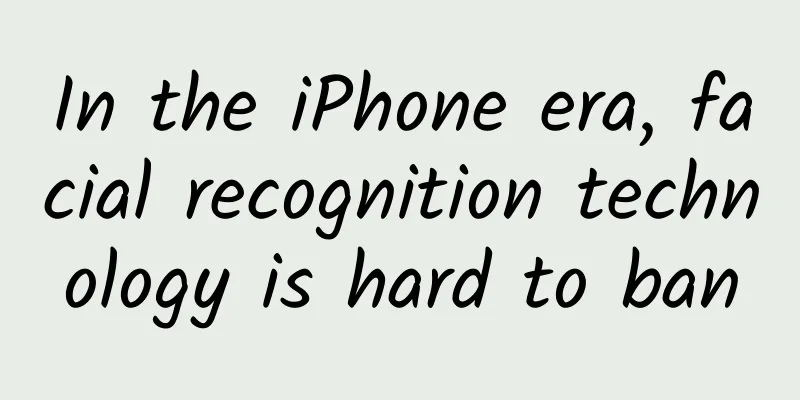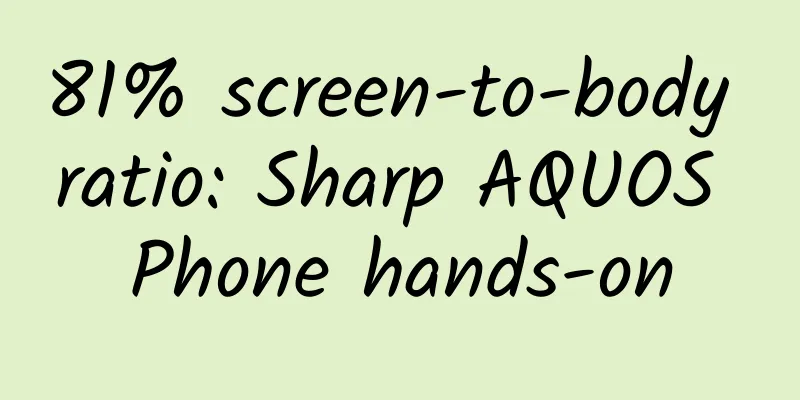In the iPhone era, facial recognition technology is hard to ban

|
San Francisco supervisors voted to amend the law to allow the use of iPhones with Face ID. The amendment allows city agencies to use products with facial recognition capabilities — including iPhones — if other features are deemed essential and there are no viable alternatives.
It’s worth noting that the ban on facial recognition still applies. Municipal employees are not allowed to use Face ID and must enter a password. That may upset some privacy advocates, but Matt Cagle, an attorney with the American Civil Liberties Union, said it was important that the ban on using facial recognition still applied. He said:
Facial recognition is difficult to ban In May, after San Francisco issued a facial recognition technology ban to municipal departments, the city's relevant departments soon discovered that a large amount of facial recognition technology was still in use in San Francisco. In addition, Lee Hepner, an assistant to Supervisor Aaron Peskin, a member of the local Board of Supervisors who took the lead in implementing the ban, said that even if the Face ID unlocking function is turned off, iPhones with this function are currently illegal. Around the same time, local police rushed to shut down their facial recognition systems and stopped searching for facial photos that had not been seen by the public or the local board of supervisors. Todd Pastorini, vice president of DataWorks Plus, a private law enforcement software company in South Carolina, said San Francisco police had called to disable the facial recognition software that San Francisco had obtained from the company. According to Leifeng.com (official account: Leifeng.com), New York and Los Angeles police use the same DataWorks software to search facial photo databases using photos collected from surveillance videos and other sources. The incidents show how thorny it is to regulate facial recognition — which a handful of cities have already begun to implement and is being considered in Washington — given its many uses and its ubiquity in consumer devices and surveillance systems. The technology has been criticized for being inaccurate, especially for people of color, but it is undeniably cheap to use and is becoming standard for police. San Francisco's ban was followed by similar regulations in nearby Oakland and Somerville, Massachusetts. As those cities enacted their bans, other cities across the U.S. began to use the technology more cautiously and avoid iPhones. On December 12, local time, WBUR News reported that due to concerns about Facebook's facial recognition and tagging functions, Brookline, Massachusetts passed a ban on facial recognition systems on municipal officials' personal devices. The city of Alameda in the San Francisco Bay area is considering following San Francisco's example and passing a similar ban. As Matt Cagle of the ACLU puts it:
In late January, when the surveillance bill and facial recognition ban were proposed, San Francisco police told Ars Technica that the department had stopped using facial recognition since 2017. The department did not publicly mention that it had signed a contract with DataWorks that year to use the company's facial photo database and facial recognition software, as well as a facial recognition server, until the summer of 2020, nor did it disclose that they were planning to upgrade the system. Wired magazine learned details of the contract and the 2019 test through a public records request. Documents obtained by Wired include an internal police department email sent the day the San Francisco ban was passed that mentioned testing of a new facial recognition "engine." Asked about the testing, spokesman Michael Andraychak acknowledged that the department had begun a 90-day trial of a new facial recognition engine in January, but he said it was shut down after the trial ended. He said the facial recognition servers connected to DataWorks were taken down after the law banning facial recognition took effect in July. Until now, the San Francisco Police Department seemed to have been able to use facial recognition relatively easily without the public’s knowledge, which was a bit of a surprise to Brian Hofer, a lawyer and privacy activist who helped draft the San Francisco ban and other similar ordinances in nearby Berkeley and Oakland. He said the fact that departments can access information without the public’s knowledge shows the need to limit access to surveillance technology is one of the reasons we’re pushing these ordinances everywhere. |
>>: Who will protect the security of facial recognition?
Recommend
In a few words: You have to be ruthless to lose weight, is the ketogenic diet effective? The pitfalls on the road to weight loss
Niu Niu: Xiaobing, I heard that a UP host on Bili...
With a budget of 200,000 yuan, for a pure electric SUV, which one would you choose, Zhiji LS6 or Zeekr 7X?
On September 20, Geely's pure electric brand ...
Amazing! Intestinal flora can actually metabolize nicotine?
Author: Zhao Bei Smoking is harmful to health, bu...
A case study of the WeChat Moments distribution that sold 8,000 copies
Event background: On November 13, 2019, I saw a c...
The world is watching! What exactly is the "Starship" that Musk is going to launch today?
After four years of various tests, ignitions, and...
Is Xiaomi worth $40 billion? Is it worth more than Lenovo?
After Xiaomi ranked third in the global smartphon...
Be careful! 9 ways to accidentally expose your information
Recently, the media reported that nearly 80% of I...
Zhihu’s operational strategy
I recently updated the Zhihu app to 6.46.0., and ...
Wearing AR glasses to assemble the Chinese space station, super cool
Not long ago, several students from Tsinghua Univ...
Is it difficult for users to remember the advertising copy? Try these 5 copywriting templates
Before reading, please think back. What are the a...
How to Improve User Experience by Developing WeChat Mini Programs for Home Appliances
At present, both in terms of performance and oper...
Dual-line server hosting improves network access speed
Computer network is an indispensable thing for us...
The latest notice on leaving and entering Beijing today in March 2022: Is it necessary to do a nucleic acid test within 72 hours after entering Beijing?
In recent days, there have been new cases of epid...
People's Daily Comment: Chinese films should have the capacity to accommodate "one star"
Going to Douban to check the ratings before watch...









